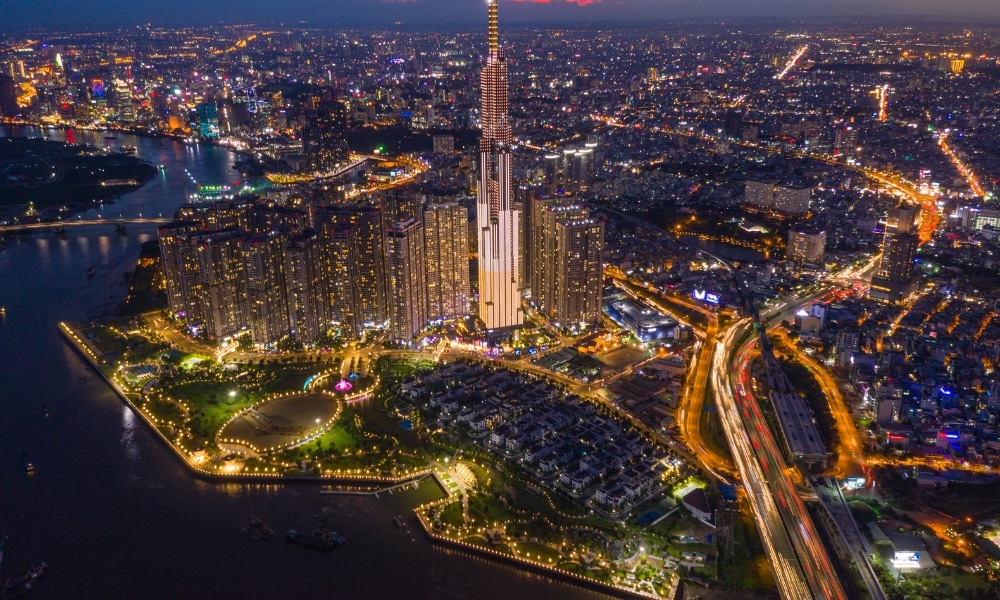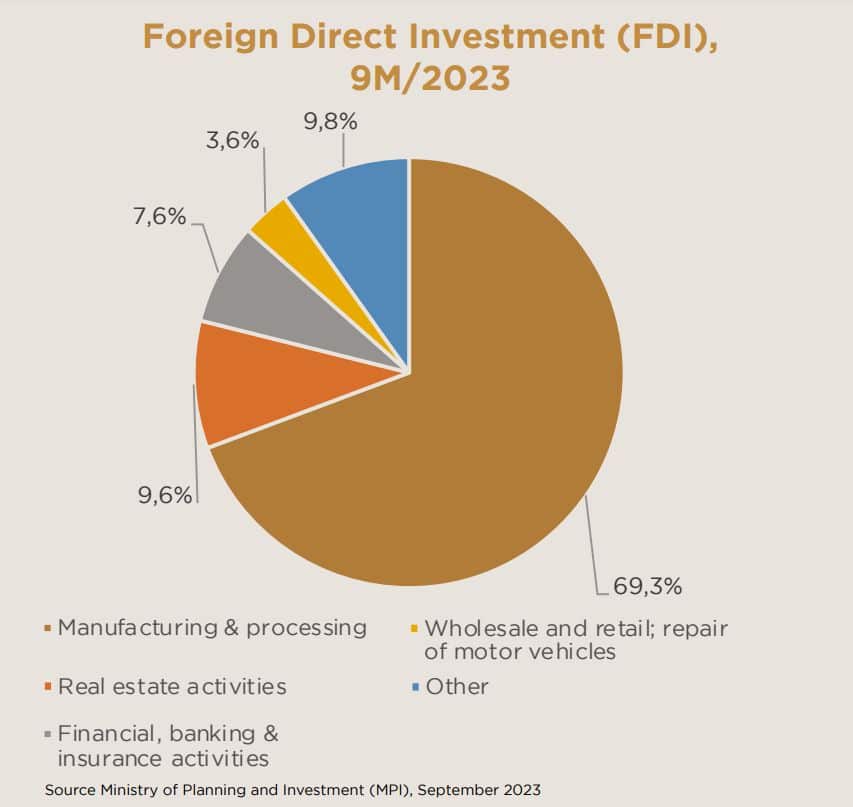
Amidst the global economic upheavals caused by the pandemic, countries worldwide have been strategizing to revive their economies. Vietnam, aiming to position itself as one of the top countries best to invest in, has also been proactively adjusting its policies to attract foreign direct investment (FDI). In this context, it’s crucial to examine the trends of FDI in Vietnam after the pandemic period.

The epidemic had a significant impact on foreign direct investment and the global economic climate, as well as affecting healthcare and education. According to the UN Conference on Trade and Development report, foreign direct investment (FDI) decreased by 30% in 2020, lower than it was during the economic crisis more than ten years ago. However, FDI inflows rebounded significantly in 2021, reaching about $1.6 trillion.
While FDI inflows into developing economies grew at a slower rate than in developed countries in 2021, they rose by 30%, thanks mostly to robust development in Asian countries. Singapore contributed the most (19.7% or US$3.98 billion), followed by China (14.5%) and Japan (14.3%).
Global FDI flows have propelled economic growth in several countries, including Vietnam, since the 1980s. Technology advancements, the development of jobs, and long-term trade agreements are just a few advantages that come with foreign direct investment (FDI) and have all played a significant role in Vietnam’s economic transformation.
Vietnam has benefited greatly from the introduction of advanced technology and management techniques thanks in large part to FDI. Innovative technology and experience are often provided by multinational enterprises, which local businesses might use and modify. In sectors like high-tech manufacturing, where Vietnam has established itself as a key participant in international supply chains, this technological transfer is particularly evident. For instance, tech giant investments have ushered in innovative manufacturing techniques that boost output and effectiveness.
FDI has been a significant driver of employment in Vietnam. Foreign firms create new businesses and expand existing ones, giving locals a wide range of employment options. In addition to lowering unemployment rates, this rise in work options helps people enhance their skills by giving them training and experience in a range of areas. Vietnam’s socioeconomic development has been aided by the creation of numerous job possibilities, particularly by the industrial sector.
The entry of foreign money has increased Vietnam’s production capacity. FDI projects frequently include the construction of new factories and the upgrade of existing ones, resulting in increased production capacity. This improvement has allowed Vietnam to produce a wider range of items more efficiently and with higher quality, increasing the country’s competitiveness in the global marketplace. For example, foreign investments have greatly benefited the electronics and textile industries, increasing their production capacities and export possibilities.
Foreign direct investment (FDI) has helped Vietnam grow its export markets significantly. Foreign-invested enterprises frequently have vast worldwide networks, which Vietnamese businesses can use to get access to new markets. This expansion has resulted in a more diverse export portfolio with less reliance on a small number of export destinations. As a result, Vietnam’s export sector has expanded rapidly, contributing significantly to the national economy.
Vietnam’s overall economic development and growth have been aided by FDI. A number of businesses, including manufacturing, real estate, finance, and services, have benefited from the influx of foreign money. Better living standards for the general public, increased GDP growth rates, and more economic activity have all been brought about by this boost.
Vietnam’s investments in high-tech manufacturing have cemented its position as a significant player in global supply chains. Companies from all over the world are progressively establishing production facilities in Vietnam to take advantage of its strategic location, talented labor, and affordable rates. This integration into global supply chains has increased Vietnam’s exports while also strengthening its economic resilience by diversifying its operations.
FDI promotes long-term trade ties between Vietnam and the investing countries. These commitments frequently include long-term contracts and stable commercial connections, ensuring Vietnam’s economic stability and income security. The steady entry of FDI enables continued economic participation and collaboration, which are critical for long-term economic planning and growth.

Read more: Is Vietnam One of The Top 20 Best Countries to Invest In?
By September 20, 2023, total registered FDI in Vietnam reached $20.21 billion. This included 2,254 new projects with registered capital investments of $10.23 billion and 934 existing projects that increased their capital by $5.14 billion.
The manufacturing and processing sector dominated with a 69.3% share of the registered capital, amounting to $14 billion. The real estate sector followed with total investments of approximately $1.94 billion, accounting for 9.6% of the total. The finance, banking, and insurance sector was third, attracting $1.54 billion or a 7.6% share.

Read more: Which Is The Best Country to Invest in Real Estate According to Economists?
Despite the challenges posed by the pandemic, Vietnam has emerged as a preferred destination for FDI, with diverse sectors such as processing and manufacturing, real estate, finance-banking, and wholesale-retail witnessing substantial investments.
The contributions from countries like Singapore, the Republic of Korea, and Hong Kong have been instrumental in driving Vietnam’s FDI growth, highlighting the confidence of investors in the country’s economic prospects. Moreover, the dominance of Asian investors underscores the region’s strong ties with Vietnam’s economy.
Provinces and cities across Vietnam, particularly Quang Ninh, Hai Phong, Hanoi, and Ho Chi Minh City, have attracted significant FDI, signaling their potential for economic development and growth. Ho Chi Minh City’s performance in attracting new projects and capital further solidifies its position as a key investment destination.
Looking ahead, Vietnam’s proactive policies to improve its investment climate and attract FDI are expected to continue fueling economic growth and development. With ongoing efforts to enhance infrastructure, streamline regulations, and foster innovation, Vietnam remains poised to attract even greater investments and emerge as a leading destination for foreign investors in the region.
Explore the opportunities with Savills Industrial, a trusted partner in navigating Vietnam’s dynamic real estate landscape. Our expert team is ready to assist you in making informed investment decisions, ensuring you capitalize on the thriving FDI environment.
Contact Savills Industrial today to learn more about our comprehensive real estate services and how we can help you succeed in Vietnam’s burgeoning industrial market.